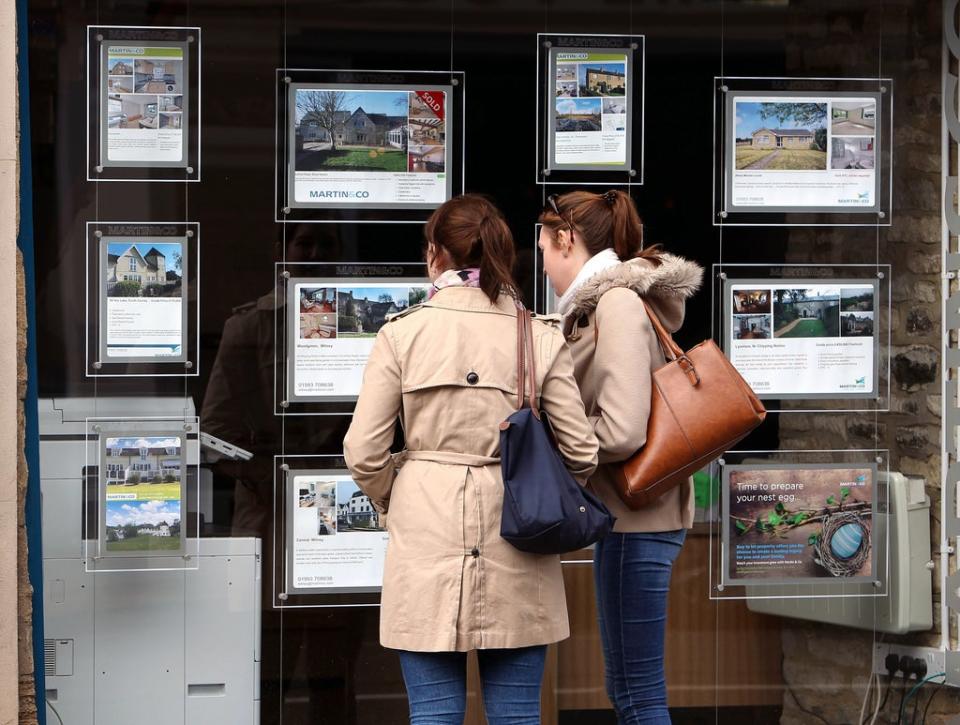‘Generation precariat’: Less than half of young people think they will ever be homeowners

Less than half of young people believe they will ever be able to own their own home, according to new research highlighting the increasingly precarious nature of modern work.
The UK's cost of living crisis will hit young people hard because they are more likely to be in precarious work and to be in debt, the Royal Society for Arts, Manufactures and Commerce (RSA) said.
The organisation warned that worries about inflation, student debt and higher taxes are intensifying among younger people, with neither work nor the welfare system providing the security they need.
A poll of more than 1,000 people aged 16 to 24 by the RSA noted a significant decline in young people’s financial stability as they get older.
Young people face a “challenging future” and have become “generation precariat”, as rising costs of living, debt and tax increases impact their economic security and mental health, the RSA said.
Just 41 per cent of those polled said they believed they would be able to afford their own home while 51 per cent believed they could earn enough to support a family or to have a comfortable retirement.
Almost half (47 per cent) said they were unable or just about managing to make ends meet each month, or have an income that varies significantly each week or month. Close to a quarter said they don’t think they will ever feel financially secure.
Young people have been among the most severely impacted financially by the pandemic and face further problems this year as living costs are set to rise sharply.
Those suffering from financial precarity are far more likely to be concerned about their physical and mental health and their future, the research found.
Young people are more likely to fall into what the RSA categorises as “financially precarious” as they get older, with 57 per cent of 22-24-year-olds in a precarious financial situation, compared to 38 per cent of 16-18-year-olds and 48 per cent of 19-21-year-olds.
Financial security deteriorates as people’s support networks fall away, with neither work nor the welfare system providing adequate the RSA said.
Young people are more likely to work in the gig economy and on zero-hour contracts – of those in work, one in five told the RSA that their income varies from month to month
This goes hand in hand with changes to young people’s financial situation as they get older: they take a hit to their savings and are more likely to take on debt. By the time they turn 22, three-quarters of young people will be in some form of debt.
The government has increasingly made vocational training and apprenticeship schemes a priority in recent years, but the RSA’s research shows that this group is also among the least financially secure. The government’s living wage doesn’t apply to under-23s, and apprentices can earn less than £5 an hour.
The report warns that rising inflation, and changes to the national insurance and student loan system mean that more young people will be “left in the lurch”.
The government is considering lowering the repayment threshold on student loans to £22,000, and national insurance contributions are set to increase to 13.5 per cent in April 2022.
Martina Kane, policy and engagement manager at the Health Foundation's Healthy Lives team, said: “The current generation of young people living in the UK are facing difficult challenges: from navigating the world of poor-quality employment to living precariously in the private rental sector.
“These all have an impact on their long-term health. Whilst the solution to economic insecurity is complex, taking action will help provide young people with stable foundations for a healthier adult life.”

 Yahoo Finance
Yahoo Finance 